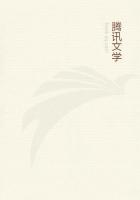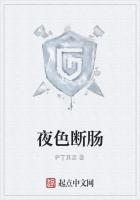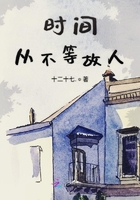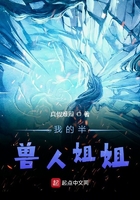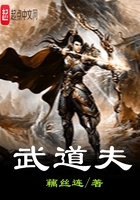I think and think, and can think of nothing more. And however much I might think, and however far my thoughts might travel, it is clear to me that there is nothing vital, nothing of great importance in my desires. In my passion for science, in my desire to live, in this sitting on a strange bed, and in this striving to know myself -- in all the thoughts, feelings, and ideas I form about everything, there is no common bond to connect it all into one whole. Every feeling and every thought exists apart in me; and in all my criticisms of science, the theatre, literature, my pupils, and in all the pictures my imagination draws, even the most skilful analyst could not find what is called a general idea, or the god of a living man.
And if there is not that, then there is nothing.
In a state so poverty-stricken, a serious ailment, the fear of death, the influences of circumstance and men were enough to turn upside down and scatter in fragments all which I had once looked upon as my theory of life, and in which I had seen the meaning and joy of my existence. So there is nothing surprising in the fact that I have over-shadowed the last months of my life with thoughts and feelings only worthy of a slave and barbarian, and that now I am indifferent and take no heed of the dawn. When a man has not in him what is loftier and mightier than all external impressions a bad cold is really enough to upset his equilibrium and make him begin to see an owl in every bird, to hear a dog howling in every sound. And all his pessimism or optimism with his thoughts great and small have at such times significance as symptoms and nothing more.
I am vanquished. If it is so, it is useless to think, it is useless to talk. I will sit and wait in silence for what is to come.
In the morning the corridor attendant brings me tea and a copy of the local newspaper. Mechanically I read the advertisements on the first page, the leading article, the extracts from the newspapers and journals, the chronicle of events. . . . In the latter I find, among other things, the following paragraph: "Our distinguished savant, Professor Nikolay Stepanovitch So-and-so, arrived yesterday in Harkov, and is staying in the So-and-so Hotel."
Apparently, illustrious names are created to live on their own account, apart from those that bear them. Now my name is promenading tranquilly about Harkov; in another three months, printed in gold letters on my monument, it will shine bright as the sun itself, while I s hall be already under the moss.
A light tap at the door. Somebody wants me.
"Who is there? Come in."
The door opens, and I step back surprised and hurriedly wrap my dressing-gown round me. Before me stands Katya.
"How do you do?" she says, breathless with running upstairs. "You didn't expect me? I have come here, too. . . . I have come, too!"
She sits down and goes on, hesitating and not looking at me.
"Why don't you speak to me? I have come, too . . . today. . . . I found out that you were in this hotel, and have come to you."
"Very glad to see you," I say, shrugging my shoulders, "but I am surprised. You seem to have dropped from the skies. What have you come for?"
"Oh . . . I've simply come."
Silence. Suddenly she jumps up impulsively and comes to me.
"Nikolay Stepanovitch," she says, turning pale and pressing her hands on her bosom -- "Nikolay Stepanovitch, I cannot go on living like this! I cannot! For God's sake tell me quickly, this minute, what I am to do! Tell me, what am I to do?"
"What can I tell you?" I ask in perplexity. "I can do nothing."
"Tell me, I beseech you," she goes on, breathing hard and trembling all over. "I swear that I cannot go on living like this. It's too much for me!"
She sinks on a chair and begins sobbing. She flings her head back, wrings her hands, taps with her feet; her hat falls off and hangs bobbing on its elastic; her hair is ruffled.
"Help me! help me! "she implores me. "I cannot go on!"
She takes her handkerchief out of her travelling-bag, and with it pulls out several letters, which fall from her lap to the floor.
I pick them up, and on one of them I recognize the handwriting of Mihail Fyodorovitch and accidentally read a bit of a word "passionat. . ."
"There is nothing I can tell you, Katya," I say.
"Help me!" she sobs, clutching at my hand and kissing it. "You are my father, you know, my only friend! You are clever, educated; you have lived so long; you have been a teacher! Tell me, what am I to do?"
"Upon my word, Katya, I don't know. . . ."
I am utterly at a loss and confused, touched by her sobs, and hardly able to stand.
"Let us have lunch, Katya," I say, with a forced smile. "Give over crying."
And at once I add in a sinking voice:
"I shall soon be gone, Katya. . . ."
"Only one word, only one word!" she weeps, stretching out her hands to me.
"What am I to do?"
"You are a queer girl, really . . ." I mutter. "I don't understand it! So sensible, and all at once crying your eyes out.
. . ."
A silence follows. Katya straightens her hair, puts on her hat, then crumples up the letters and stuffs them in her bag -- and all this deliberately, in silence. Her face, her bosom, and her gloves are wet with tears, but her expression now is cold and forbidding. . . . I look at her, and feel ashamed that I am happier than she. The absence of what my philosophic colleagues call a general idea I have detected in myself only just before death, in the decline of my days, while the soul of this poor girl has known and will know no refuge all her life, all her life!
"Let us have lunch, Katya," I say.
"No, thank you," she answers coldly. Another minute passes in silence. "I don't like Harkov," I say; "it's so grey here -- such a grey town."
"Yes, perhaps. . . . It's ugly. I am here not for long, passing through. I am going on today."
"Where?"
"To the Crimea . . . that is, to the Caucasus."
"Oh! For long?"
"I don't know."
Katya gets up, and, with a cold smile, holds out her hand without looking at me.

